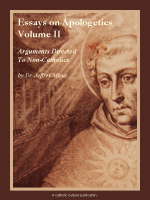From CatholicCulture.org:
The Pope to Cuba: Christ Alone Can Set Us Free
The Pope to Cuba: Christ Alone Can Set Us Free

 By Dr. Jeff Mirus | March 29, 2012 5:01 PM
By Dr. Jeff Mirus | March 29, 2012 5:01 PM
At yesterday’s Mass in Havana’s Plaza de la Revolucion, Pope Benedict preached on the regular daily readings to send a clear message to the Cuban people, including the Cuban government: Christ is the key to the truth, freedom and love by which society must be transformed.
The first reading recounted the story of Shadrach, Meshach and Abednego, who were cast into the fiery furnace by King Nebuchadnezzar because they would not worship the King’s idol. There could scarcely be a more appropriate reading for the Pope’s visit to Cuba, where Fidel Castro has held the Cuban people in thrall to Communism for decades. The three young men were saved by God, and the Pope used the reading to emphasize a key point:
They experienced the strength to “give thanks, glorify and praise God” in the conviction that the Lord of the universe and of history would not abandon them to death and annihilation. Truly, God never abandons his children, he never forgets them. He is above us and is able to save us by his power. At the same time, he is near to his people, and through his Son Jesus Christ he has wished to make his dwelling place among us in.
This message was reinforced by the Gospel, in which Our Lord states unequivocally: “If you continue in my word, you are truly my disciples, and you will know the truth, and the truth will make you free” (Jn 8:31). This confluence of readings could be said to be providential for any of us, but for people under a brutal atheistic regime there can be no question of coincidence. As the Pope explained:
Jesus reveals himself as the Son of God the Father, the Savior, the one who alone can show us the truth and give us genuine freedom. His teaching provokes resistance and disquiet among his hearers, and he accuses them of looking for reasons to kill him…. Even so, he exhorts them to believe, to keep his word, so as to know the truth which redeems and justifies.
Benedict went on to insist that the human desire for truth presupposes authentic freedom. He denounced two distortions of this relationship between truth and liberty. On the one hand, we have those who “prefer to take the easy way out”, to deny the importance or even the existence of truth—the skeptics and relativists who sneer with Pilate, saying “What is truth?” These change their hearts and the hearts of others into something “cold, wavering, distant from others, and closed.”
On the other hand, we have the fanatics, those who forget the role of reason in the quest for truth, and who therefore “close themselves up in ‘their truth’, and try to impose it on others”—blind guides who, when Our Lord or anyone else serves as a sign of contradiction to their own distortion, shout “Crucify Him!” Thus “it is not irrationality but rather the yearning for truth which the Christian faith promotes. Each man and woman has to seek the truth and to choose it when he or she finds it, even at the risk of embracing sacrifices.”
But it is not only the case that freedom is essential to the quest for truth; the Pope pointed out that truth is equally essential to freedom:
Furthermore, the truth which stands above humanity is an unavoidable condition for attaining freedom, since in it we discover the foundation of an ethics on which all can converge and which contains clear and precise indications concerning life and death, duties and rights, marriage, family and society, in short, regarding the inviolable dignity of the human person. This ethical patrimony can bring together different cultures, peoples and religions, authorities and citizens, citizens among themselves, and believers in Christ and non-believers.
The pope went on to make a strong case in particular for religious freedom. He insisted, however, that the Church does not claim such freedom in terms of “any special privileges for herself” but in obedience to Christ, who has made the Church conscious of the fact that “where Christ is present, we become more human and our humanity becomes more authentic.” Indeed, religious freedom “consolidates social bonds, nourishes the hope of a better world, creates favorable conditions for peace and harmonious development, while at the same time establishing solid foundations for securing the rights of future generations.”
“Do not hesitate to follow Jesus Christ,” the Holy Father insisted in the shadow of an evil regime. “In him we find the truth about God and about mankind” and without Him, immersed in evil, we become the slaves of sin “and will never attain freedom” (Jn 8:34). This is the challenge the Pope sets before all of us, though it is a particularly poignant challenge in Cuba. It is a challenge equally to those with power and those without it, though it takes more courage to speak it to those who can marginalize, imprison, torture and kill:
Convinced that it is Christ who is the true measure of man, and knowing that in him we find the strength needed to face every trial, I wish to proclaim openly that Jesus Christ is the way, the truth and the life. In him everyone will find complete freedom, the light to understand reality most deeply and to transform it by the renewing power of love.email the editor
 | Jeffrey Mirus - President of CatholicCulture.orgIf you found this helpful, our bi-weekly Insights emails can notify you of key commentary items. Also, please support this apostolic work. |


No comments:
Post a Comment